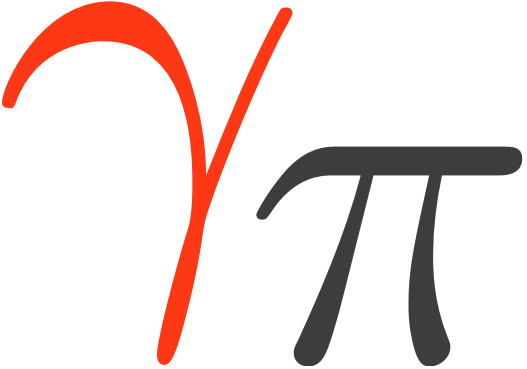GTI#
- class gammapy.data.GTI[source]#
Bases:
objectGood time intervals (GTI)
Table.Data format specification: GTI.
Note: at the moment dead-time and live-time is in the EVENTS header … the GTI header just deals with observation times.
- Parameters:
Examples
Load GTIs for a H.E.S.S. event list:
>>> from gammapy.data import GTI >>> gti = GTI.read('$GAMMAPY_DATA/hess-dl3-dr1//data/hess_dl3_dr1_obs_id_023523.fits.gz') >>> print(gti) GTI info: - Number of GTIs: 1 - Duration: 1687.0000000000016 s - Start: 123890826.00000001 s MET - Start: 2004-12-04T22:08:10.184 (time standard: TT) - Stop: 123892513.00000001 s MET - Stop: 2004-12-04T22:36:17.184 (time standard: TT)
Load GTIs for a Fermi-LAT event list:
>>> gti = GTI.read("$GAMMAPY_DATA/fermi-3fhl-gc/fermi-3fhl-gc-events.fits.gz") >>> print(gti) GTI info: - Number of GTIs: 39042 - Duration: 183139597.9032163 s - Start: 239557417.49417615 s MET - Start: 2008-08-04T15:44:41.678 (time standard: TT) - Stop: 460249999.99999994 s MET - Stop: 2015-08-02T23:14:24.184 (time standard: TT)
Attributes Summary
GTI start time difference with reference time in seconds, MET as a
Quantity.GTI start time difference with reference time in seconds, MET as a
Quantity.GTI durations in seconds as a
Quantity.List of time intervals.
Time reference as a
Timeobject.GTI start times as a
Timeobject.GTI end times as a
Timeobject.Sum of GTIs in seconds as a
Quantity.Methods Summary
copy()Deep copy of the
GITobject.create(start, stop[, reference_time])Create a GTI table from start and stop times.
delete_interval(time_interval)Select and crop GTIs in time interval.
from_stack(gtis, **kwargs)Stack (concatenate) list of GTIs.
from_table_hdu(table_hdu[, format])Read from table HDU.
from_time_intervals(time_intervals[, ...])From list of time intervals.
group_table(time_intervals[, atol])Compute the table with the info on the group to which belong each time interval.
read(filename[, hdu, format, checksum])Read from FITS file.
select_time(time_interval)Select and crop GTIs in time interval.
stack(other)Stack with another GTI in place.
to_table_hdu([format])Convert this GTI instance to a
astropy.io.fits.BinTableHDU.union([overlap_ok, merge_equal])Union of overlapping time intervals.
write(filename, **kwargs)Write to file.
Attributes Documentation
- time_intervals#
List of time intervals.
Methods Documentation
- classmethod create(start, stop, reference_time=None)[source]#
Create a GTI table from start and stop times.
- delete_interval(time_interval)[source]#
Select and crop GTIs in time interval.
- Parameters:
- time_interval[
astropy.time.Time,astropy.time.Time] Start and stop time for the selection.
- time_interval[
- Returns:
- gti
GTI Copy of the GTI table with the bad time interval deleted.
- gti
- classmethod from_table_hdu(table_hdu, format='gadf')[source]#
Read from table HDU.
- Parameters:
- table_hdu
BinTableHDU table hdu.
- format{“gadf”}
Input format, currently only “gadf” is supported. Default is “gadf”.
- table_hdu
- classmethod from_time_intervals(time_intervals, reference_time=None)[source]#
From list of time intervals.
- group_table(time_intervals, atol='1e-6 s')[source]#
Compute the table with the info on the group to which belong each time interval.
The t_start and t_stop are stored in MJD from a scale in “utc”.
- Parameters:
- time_intervalslist of
astropy.time.Time Start and stop time for each interval to compute the LC.
- atol
Quantity Tolerance value for time comparison with different scale. Default is “1e-6 s”.
- time_intervalslist of
- Returns:
- group_table
Table Contains the grouping info.
- group_table
- classmethod read(filename, hdu='GTI', format='gadf', checksum=False)[source]#
Read from FITS file.
- Parameters:
- filename
pathlib.Pathor str Filename
- hdustr
hdu name. Default is “GTI”.
- format: str
Input format, currently only “gadf” is supported. Default is “gadf”.
- checksumbool
If True checks both DATASUM and CHECKSUM cards in the file headers. Default is False.
- filename
- select_time(time_interval)[source]#
Select and crop GTIs in time interval.
- Parameters:
- time_interval
astropy.time.Time Start and stop time for the selection.
- time_interval
- Returns:
- gti
GTI Copy of the GTI table with selection applied.
- gti
- stack(other)[source]#
Stack with another GTI in place.
This simply changes the time reference of the second GTI table and stack the two tables. No logic is applied to the intervals.
- Parameters:
- other
GTI GTI to stack to self.
- other
- to_table_hdu(format='gadf')[source]#
Convert this GTI instance to a
astropy.io.fits.BinTableHDU.- Parameters:
- formatstr, optional
Output format, currently only “gadf” is supported. Default is “gadf”.
- Returns:
- hdu
astropy.io.fits.BinTableHDU GTI table converted to FITS representation.
- hdu
- union(overlap_ok=True, merge_equal=True)[source]#
Union of overlapping time intervals.
Returns a new
GTIobject.- Parameters:
- overlap_okbool, optional
Whether to raise an error when overlapping time bins are found. Default is True.
- merge_equalbool; optional
Whether to merge touching time bins e.g.
(1, 2)and(2, 3)will result in(1, 3). Default is True.
- classmethod __new__(*args, **kwargs)#
